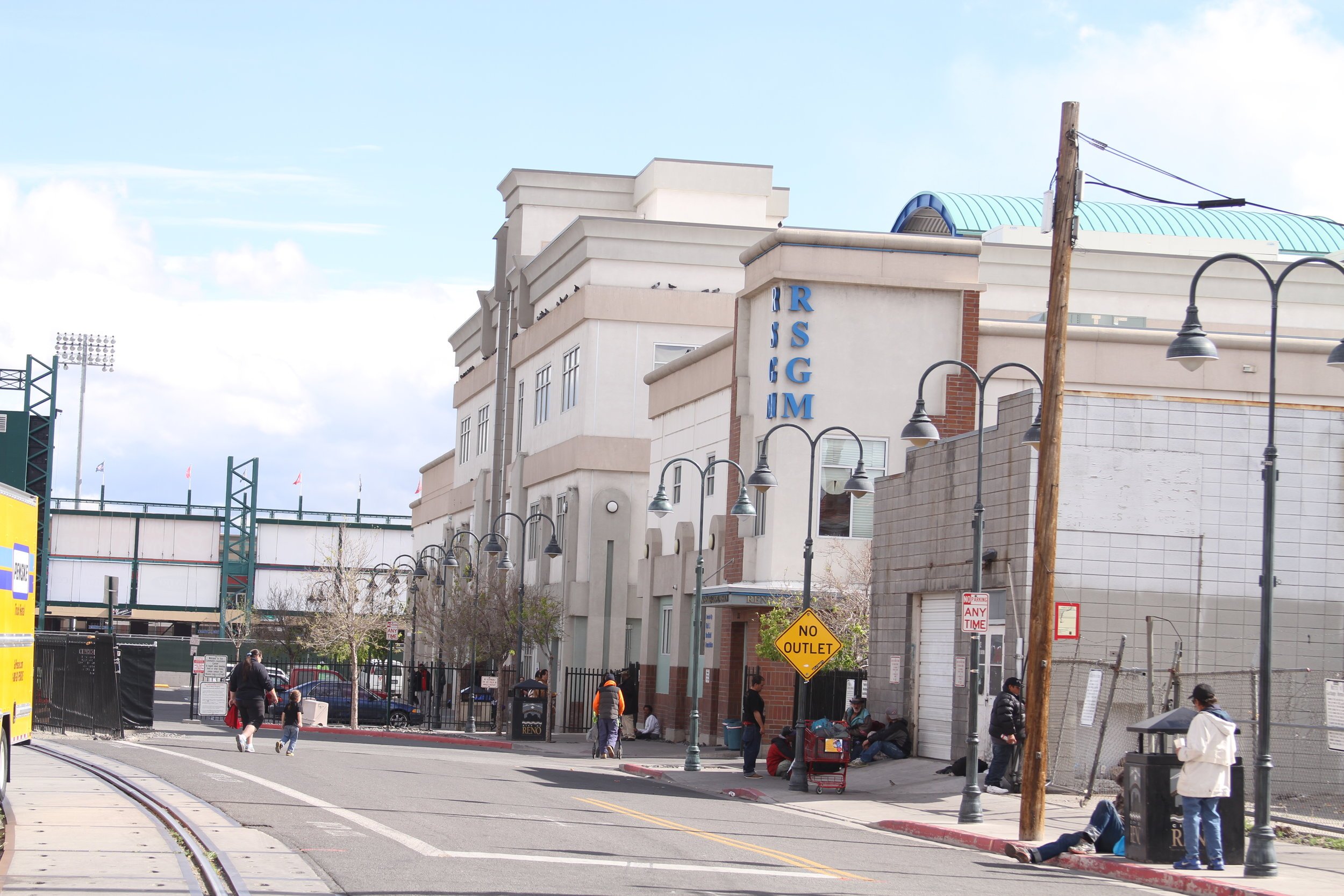
By Oscar Delgado and Chuck Duarte
Housing is essentially a safe, sheltered space. Increasingly, we are learning that housing, or the lack of it, has the potential to help – or hurt – our overall health. Often homelessness and poor health are braided together in a cycle that spirals ever downward. As both public and non-profit service providers, we see the impact unstable housing and chronic homelessness have on a person’s physical and mental well-being. We believe, along with many others in the community, it is time housing experts and health care providers work together on solutions to help the chronically homeless.
There are many examples of successful programs to get homeless individuals and families quickly re-housed on a national level and here in Reno. Many of these programs adhere to the Housing First model, which focuses on getting people into stable housing as quickly as possible and providing supportive services and access to community-based services to maintain tenancy. While many individuals and families can be quickly and successfully re-housed with little support, others, particularly those who are chronically homeless and who have a mental illness, require intensive case management and supportive services to be safely re-housed and remain off the streets.
When done well, permanent supportive housing has a direct impact on the health and well-being of the person housed, the neighborhood from which they are housed within, and the broader community. There is also ample evidence that it reduces use of other very costly services. Numerous studies show that permanent supportive housing can lead to improved medical and behavioral health outcomes, reduced use of emergency department services, reduced involvement with the criminal justice system, and lowered use of drugs and alcohol.
Where we have failed in northern Nevada is in providing the types of supportive services people need. Unfortunately, this has played out on the front page of the Reno Gazette Journal in 2016 and again in 2018; abhorrent living conditions in so-called community living arrangements for people with mental illness with little evidence of effective case management and supportive services.
Programs do exist here in Nevada as well as across the nation that are effective in helping people stay in the community surrounded by supportive services. The Nevada Department of Health and Human Services administers effective programs for the frail elderly, as well as individuals with physical and intellectual disabilities, that keep people at home or in group care settings at much lower cost than institutional care, traditionally nursing homes.
A recent report by the National Governor’s Association (NGA) entitled “Housing As Health Care: A Road Map for States” provides guidance on how states can use Medicaid to implement permanent supportive housing solutions. Numerous states are developing these programs and some have already shown improvements in health outcomes and significant reductions in health care spending.
Several key policy points have also emerged from these successes:
- There can be “no wrong door.” Eligibility determination and access to supportive services needs to be streamlined through one agency. Often this entry point is through a single state or local government agency, or a contracted provider.
- Services are person-centered. Care plans need to be based on the needs of the individual and not based on some ready-made template of services.
- Medicaid dollars must support local capacity building. Too often initiatives to help the homeless are grant funded and hence short-term. Medicaid dollars can provide a sustainable revenue stream for qualified social service providers to build and strengthen their staff and programs.
- Health care savings need to be reinvested in housing. While Medicaid cannot directly fund housing, the savings created by these programs can be targeted to more supported housing services and initiatives.
These programs are not new. In 2016, local mental health advocates worked with Medicaid staff to create a similar funding stream as a part of the current state budget. Unfortunately, the initiative did not survive the state budget process and was not included in the budget presented to the Nevada Legislature.
We are fortunate in Washoe County to have non-profit providers and advocacy groups focused on the needs of chronically homeless mentally-ill individuals. For many, the lack of a sustainable revenue stream has been a major barrier to developing permanent supportive housing. Medicaid can offer a real solution to solving this problem and promoting effective, coordinated programs that save lives and money. Let’s learn from our mistakes of not funding these opportunities for our vulnerable, and do what is right.


Oscar Delgado, MSW and MUP, serves on the Reno City Council and District Board of Health.
Chuck Duarte is the CEO at Community Health Alliance.

